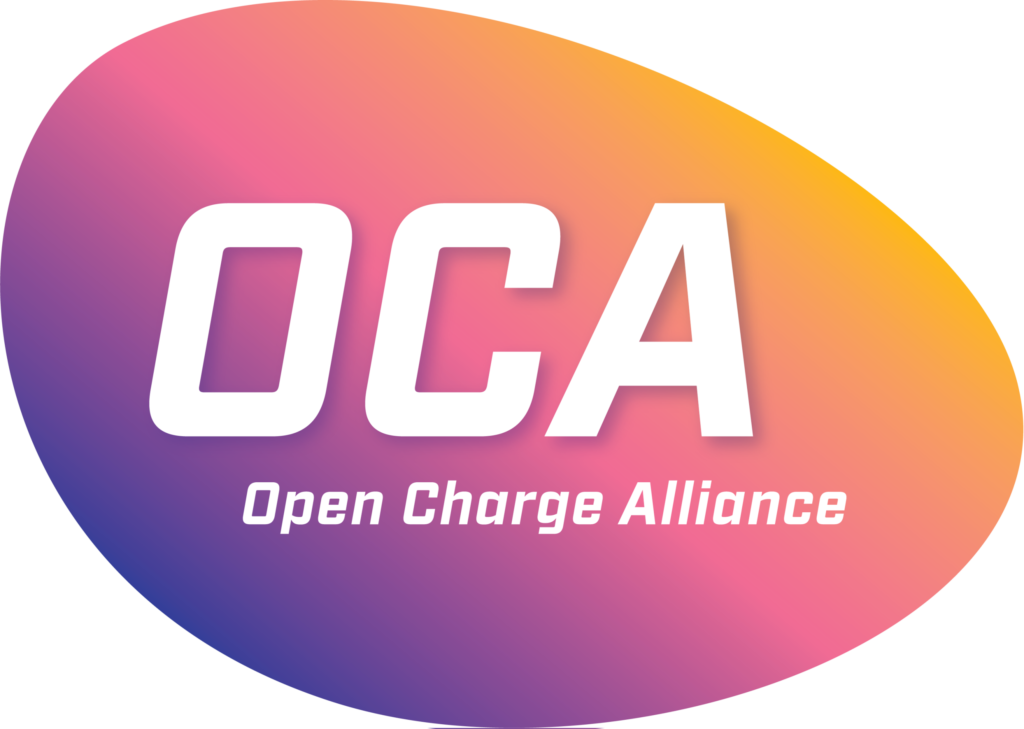What Is the Open Charge Point Protocol (OCPP)?
The Open Charge Point Protocol (OCPP) is an open-source communication standard that allows EV chargers and charge point management systems (CPMS) to work together—regardless of the manufacturer. It acts as a common language that ensures different systems can communicate seamlessly, making it easier to build, operate, and scale EV charging networks.
In a rapidly growing electric vehicle ecosystem, OCPP plays a critical role by solving one of the biggest challenges: interoperability. Without a common protocol, EV chargers would be tied to specific software vendors, creating silos, increasing costs, and limiting innovation.
OCPP removes those barriers. It’s free to use, open for anyone to adopt, and globally recognized as the go-to standard for EV charging communication.
Why the Open Charge Point Protocol Matters for EV Charging
As electric vehicle adoption accelerates, so does the demand for smarter, more connected charging infrastructure. OCPP allows public and private network operators to integrate multiple charger brands, add new features, and switch backend software—without replacing existing hardware.
Let’s break down the top benefits:
- Interoperability: Connect any OCPP-compliant charger to any compatible backend software.
- Vendor flexibility: Avoid being locked into a single manufacturer or system provider.
- Cost efficiency: Reduce infrastructure costs and extend the life of existing assets.
- Future-proofing: Keep up with industry innovation by using upgradable, standardized systems.
- Improved security: Benefit from built-in encryption, device authentication, and secure firmware updates.
By enabling interoperability and vendor choice, OCPP helps make EV charging infrastructure more affordable, accessible, and scalable.
Who Maintains and Evolves OCPP?

The Open Charge Point Protocol is governed by the Open Charge Alliance (OCA)—a global consortium of over 200 members, including EV charger manufacturers, software developers, utilities, and government agencies.
Founded in 2014, the OCA promotes open standards through collaboration, certification, and education. It ensures that OCPP continues to evolve to support emerging technologies like Plug & Charge, vehicle-to-grid (V2G), and dynamic energy management.
According to the Open Charge Alliance, OCPP is now used in over 80 countries and is the most widely adopted communication protocol for EV charging infrastructure worldwide.
OCPP Versions at a Glance
The protocol has undergone multiple iterations to meet the evolving needs of the EV ecosystem:
- OCPP 1.2 (2010): First public version; basic support for session management.
- OCPP 1.6 (2015): Most widely deployed; includes smart charging, remote control, and WebSocket communication.
- OCPP 2.0 (2018): Major improvements in device management, transaction handling, and security.
- OCPP 2.0.1 (2020): Adds Plug & Charge (ISO 15118), V2G support, and multilingual payment messaging.
- OCPP 2.1 (coming soon): Expected to improve distributed energy resource (DER) control and introduce broader backward compatibility.
Each version builds upon the last, making the protocol more secure, intelligent, and aligned with industry standards like ISO 15118.
New Features in OCPP 2.0.1
The latest stable release—OCPP 2.0.1—brings several critical enhancements that benefit both operators and end users:
- Smart charging: Enables charging stations to optimize energy usage based on grid load, pricing, and driver preferences.
- Security hardening: Includes secure boot, firmware signing, TLS encryption, and certificate management.
- Plug & Charge: Vehicles authenticate automatically through the charging cable—no app, card, or RFID needed.
- Vehicle-to-Grid (V2G): Supports bidirectional charging, allowing EVs to send power back to the grid.
- Multilingual support: Drivers can view pricing, tariffs, and status messages in their preferred language.
- Flexible payments: Accepts multiple payment methods, including credit cards, MAC address authorization, or pre-registration.
For businesses and municipalities, these features translate into lower operational costs, greater uptime, and a better user experience.
Why Businesses Choose OCPP
Whether you’re a charge point operator (CPO), property manager, or energy company, OCPP offers major strategic advantages:
- Scalability: Grow from one charger to hundreds without changing your backend.
- Competitive edge: Offer more features and integrations without depending on one vendor.
- Resilience: Avoid disruptions caused by proprietary systems going out of business.
- Compliance-ready: Meet industry expectations and align with international regulations.
With OCPP, infrastructure investment becomes less risky and more flexible—especially in fast-moving markets like Europe, the U.S., and the Middle East.
Custom Protocols vs Open Standards
Custom Protocols vs Open Standards
Some manufacturers offer proprietary protocols customized for their own hardware. While this may optimize performance short-term, it creates long-term limitations. Proprietary systems are harder to integrate, more expensive to maintain, and vulnerable to becoming obsolete.
In contrast, the Open Charge Point Protocol is designed for cross-compatibility, broad adoption, and continued innovation. It’s the preferred choice for serious EV businesses that want to scale and adapt without compromise.
Do You Need to Test for OCPP Compatibility?
Yes—especially if you’re integrating new chargers into an existing system. Compatibility testing ensures the charger behaves correctly with your management software and meets the protocol’s technical specifications.
Powerly Fully Supports OCPP
At Powerly, we believe in open, scalable EV infrastructure. That’s why our platform is built from the ground up to support OCPP 1.6 and OCPP 2.0.1.
Whether you’re launching a private EV charging network or creating a white-labeled app for your hardware, our App Builder lets you generate your own branded Android app in under 1 hour—no coding required.
Our backend integrates with all OCPP-compliant chargers and offers full support for smart charging, Plug & Charge, and remote diagnostics.
Explore the Powerly Open API or contact our team for custom integrations.
💡 Pro Tip
Always include OCPP compliance in your RFPs and hardware selection process. It’s your best defense against lock-in and future technical debt.
⚡ Fun Fact
The Open Charge Alliance was founded by ElaadNL in the Netherlands and has grown into a 200+ member organization, helping shape the future of EV charging worldwide. OCPP is now the standard used by governments, automakers, and networks on every continent. Source
Get Started with Powerly
Looking for an OCPP-compatible solution to grow your EV charging network?
Use the Powerly App Builder to launch your custom app and connect to any compliant charger—quickly, securely, and at scale.
Related Topics
If you’re ready to get started, learn how to connect your EV charger to Powerly in just a few steps. This setup guide walks you through the process of onboarding your charger, configuring access, and enabling real-time monitoring.
You can also build your own branded EV charging app with Powerly’s App Builder—perfect for businesses that want to offer a seamless user experience without writing code.
Looking for technical integration? Explore our API integration guide to automate charger data, connect external systems, and scale your energy infrastructure efficiently.
